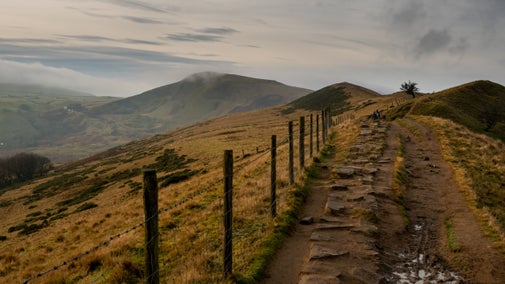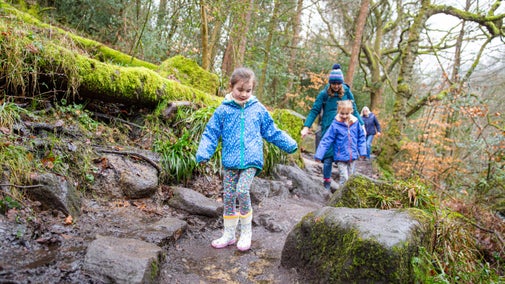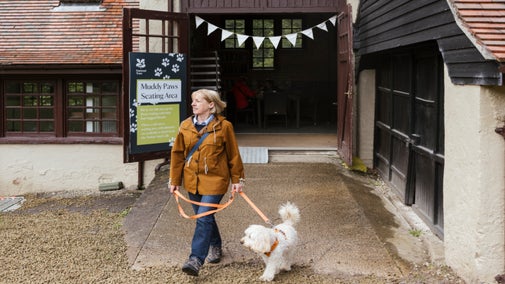
Explore countryside and woodland
Get closer to nature and explore hundreds of outdoor places. We've got miles of hillsides and woodland waiting to be discovered.

Enjoy spending time outside at National Trust coast and countryside places? You can help to keep them safe and enjoyable by observing a few simple guidelines during your visit and following the Countryside Code.
Issues such as littering, wildfires and fly-camping can all cause significant harm to landscapes and wildlife. With your help, these problems can be avoided so that these places can be protected for generations to come.
When you visit the coast and countryside, we ask that you please follow the Countryside Code

Fly-camping is where people pitch camp or park campervans in an undesignated spot (often illegally), and then leave significant amounts of litter when they leave – often including tents, camping chairs, barbecues and even human waste.
Not only does this anti-social behaviour spoil places for other visitors, it also damages habitats and causes harm to wildlife. Clearing up after fly-campers also takes up a significant amount of our ranger teams’ time, taking them away from vital nature conservation work.
If you're planning a holiday in the UK this summer, please plan ahead, book your accommodation in advance, and only pitch your tent or park your campervan at permitted sites. Please also ensure that you dispose of all rubbish properly, or take it away with you at the end of your trip.
The countryside can become very dry during the spring and summer months, which creates the perfect conditions for fires to ignite and quickly spread. Even a small spark from a barbecue or campfire can cause serious wildfires and devastate important wildlife habitats.
Wildfires also put a lot of pressure on the emergency services, and endanger local communities and wildlife. Although there are a very small number of designated barbecue areas at some of the places we care for, for instance on concrete surfaces where the risk of fire is low, these should not be used during periods whilst there is significant fire risk.
Please think of others; think of the wildlife; think of our emergency services; and don’t bring barbecues or start campfires at the beach or in the countryside.
There are thousands of miles of walking, cycling and horse-riding routes to explore all around England, Wales and Northern Ireland. Some of these trails run through crop fields or environmentally sensitive locations, so please always keep to the path or trail to avoid damaging the surrounding area.
If you’re exploring a new trail then it’s worth taking a map to make sure that you’re following the correct route, and don’t forget to look out for local signs and waymarkers as well.

In the summer of 2020, 100 bin bags were filled in one weekend at Dovedale in the Peak District, while at Formby in Merseyside there were cool boxes, chairs and glass bottles strewn across the beach.
As well as spoiling the beauty of landscapes such as these, litter can also be extremely dangerous for wildlife which can easily become entangled or mistake it for food. It can also act as fuel for wildfires.
If you do have a picnic or produce any other litter during your visit, please keep hold of it until you find a bin, or take it home with you.

Get closer to nature and explore hundreds of outdoor places. We've got miles of hillsides and woodland waiting to be discovered.

All aerial activity above our sites is prohibited unless specific permission is granted, according to an existing byelaw.

Take a family-friendly walk along these trails suitable for buggies and children. On the way, you can go wild in natural play areas and compete in woodland den building.

Learn about the places in our care with accessible trails to explore with pushchairs, wheelchairs and mobility aids. Get out in nature without having to go off the beaten track.

We look after some of the UK's most important nature reserves. Visit a nature reserve near you and discover a wide range of wildlife and plantlife.

If you’re bringing your dog(s) to the places we care for, you'll find information on our Canine Code and pawprint rating system, created in partnership with Forthglade, to help plan your visit.

Explore some of the finest landscapes in our care on coastal paths, accessible trails, woodland walks and everything in between. Find the best places to walk near you.